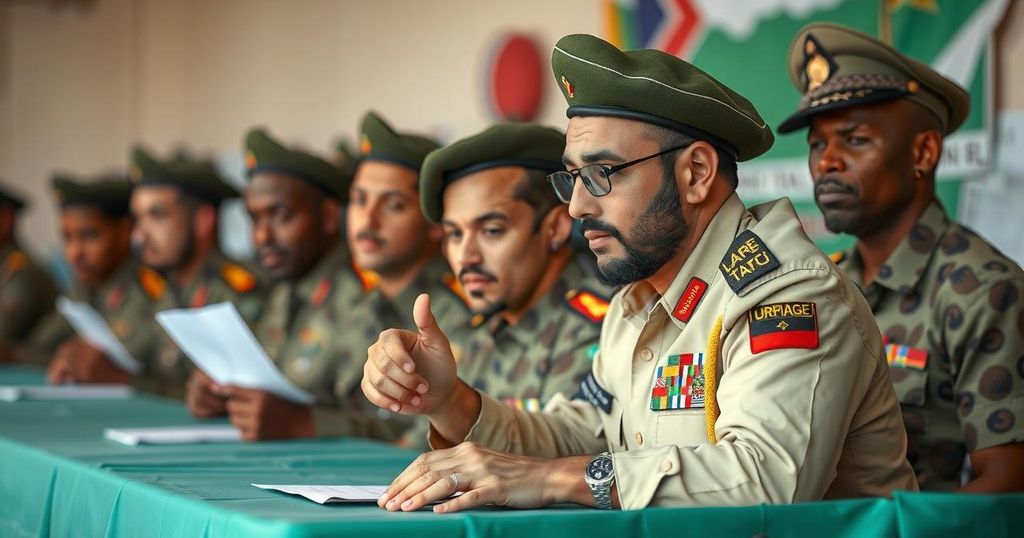Chad’s General Election Underlines Voter Apathy Amid Political Tensions

Chad conducted a general election amid low turnout, reported at 38%, primarily due to a boycott encouraged by opposition parties. The ruling party, led by President Mahamat Idriss Deby Itno, faced claims of pre-determined results, while many citizens expressed skepticism about the electoral process. The situation casts doubt on the country’s transition to democracy, as significant dissatisfaction among voters persists.
On Sunday, Chad held a general election, characterized by low voter turnout following calls for boycott by opposition parties. According to figures from the elections management agency ANGE, turnout stood at merely 38 percent, primarily attributed to voter apathy. The incumbent government, led by President Mahamat Idriss Deby Itno, who ascended to power through military means in 2021, had positioned this election as a crucial step towards restoring democratic governance. However, opposition leader Succes Masra claimed that the election results were predetermined and that most opposition supporters chose to abstain from voting. This situation has provided an advantageous position for candidates aligned with the ruling party.
The political landscape in Chad has been troubled since the military’s assumption of power following the death of long-time ruler Idriss Deby in 2021. The current government’s legitimacy has often been questioned, especially after a controversial presidential election that was deemed fraudulent by opposition parties. In this context, the recent elections were framed as a transition to democracy; however, skepticism among voters reflects deeper issues regarding governance, political representation, and social welfare in Chad.
Chad’s recent general election highlights a significant disconnect between the government and the electorate, evidenced by the low voter turnout and widespread apathy towards the electoral process. The opposition’s call for a boycott reflects deep-rooted dissatisfaction with the prevailing political conditions and the perceived illegitimacy of the election. This election, which was presented as a critical step toward democracy, has, instead, underscored the challenges that lie ahead for the Chad government in restoring public trust and ensuring fair political representation.
Original Source: www.communitynewspapergroup.com







